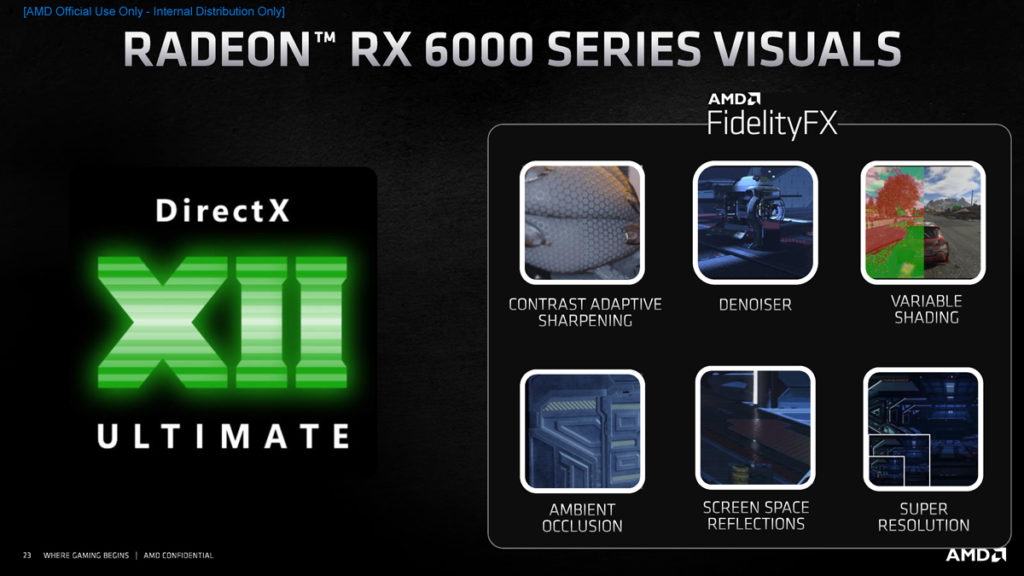
AMD will reportedly launch its answer to NVIDIA’s Deep Learning Super Sampling technology, FidelityFX Super Resolution, sometime in the spring. The rumor comes from El Chapuzas Informatico, which discovered the alleged date in an article published by Hungarian hardware site Prohardver regarding AMD Radeon Boost—a technology that dynamically lowers resolution when fast on-screen character motion is detected via user input. FidelityFX Super Resolution is an especially exciting development for red team because it has the potential to strip away one of the biggest incentives of buying a GeForce graphics card.
“[…] unlike the competing DLSS, [FidelityFX Super Resolution] will not be part of the graphics driver at AMD, but will work as a stand-alone, in-game effect,” Prohardver wrote. “Its only requirement on the graphical device driver side is support for the DirectML API, which is already solved in the PC market.”
“Incidentally, of all the available FidelityFX procedures [e.g., Contrast Adaptive Sharpening, Denoiser, Variable Shading], the company is forcing the implementation of the new Super Resolution the best. The main reason for this is the Infinity Cache, which is especially beneficial for image computations performed at lower resolutions.”
As Prohardver hinted with its comment regarding Microsoft’s DirectML API, FidelityFX Super Resolution will not be limited to Radeon graphics cards and can be utilized by developers for Xbox Series X|S and other platforms as well. The ubiquity of DirectX also suggests that FidelityFX Super Resolution could have higher adoption than DLSS.
“[…] we called [our solution] FSR — FidelityFX Super Resolution,” AMD’s Rick Bergman said in an interview with The Street last year. “But we are committed to getting that feature implemented, and we’re working with ISVs at this point. I’ll just say AMD’s approach on these types of technologies is to make sure we have broad platform support, and not require proprietary solutions [to be supported by] the ISVs. And that’s the approach that we’re taking. So as we go through next year, you’ll get a lot more details on it.”

